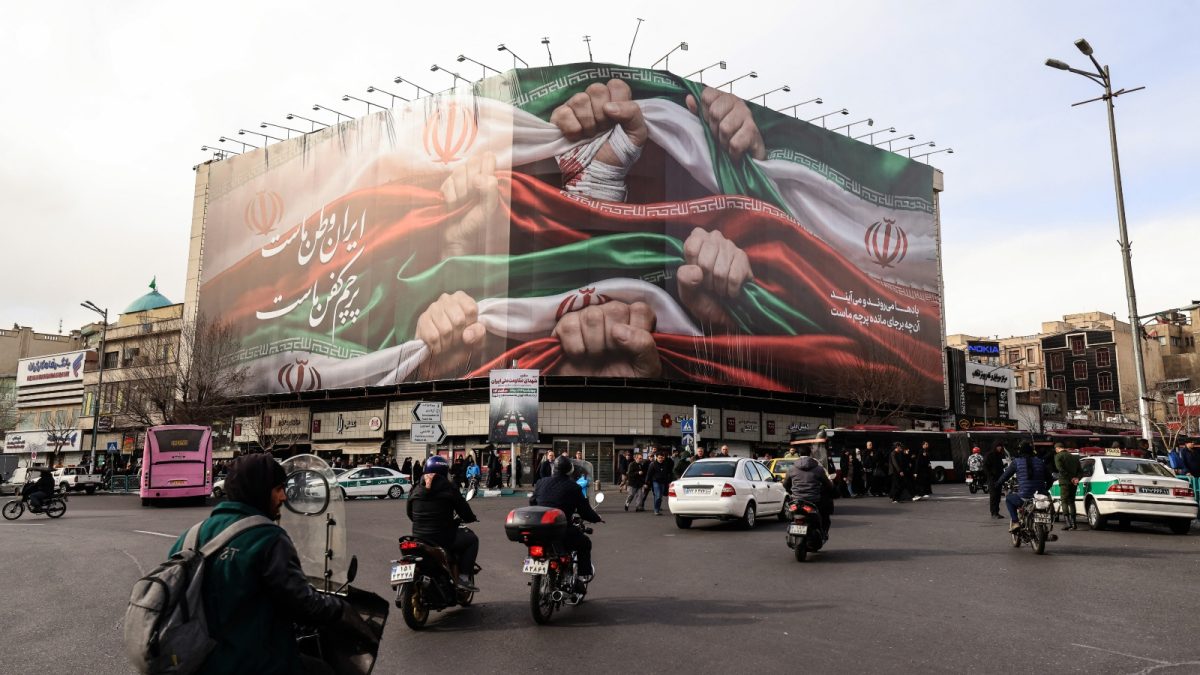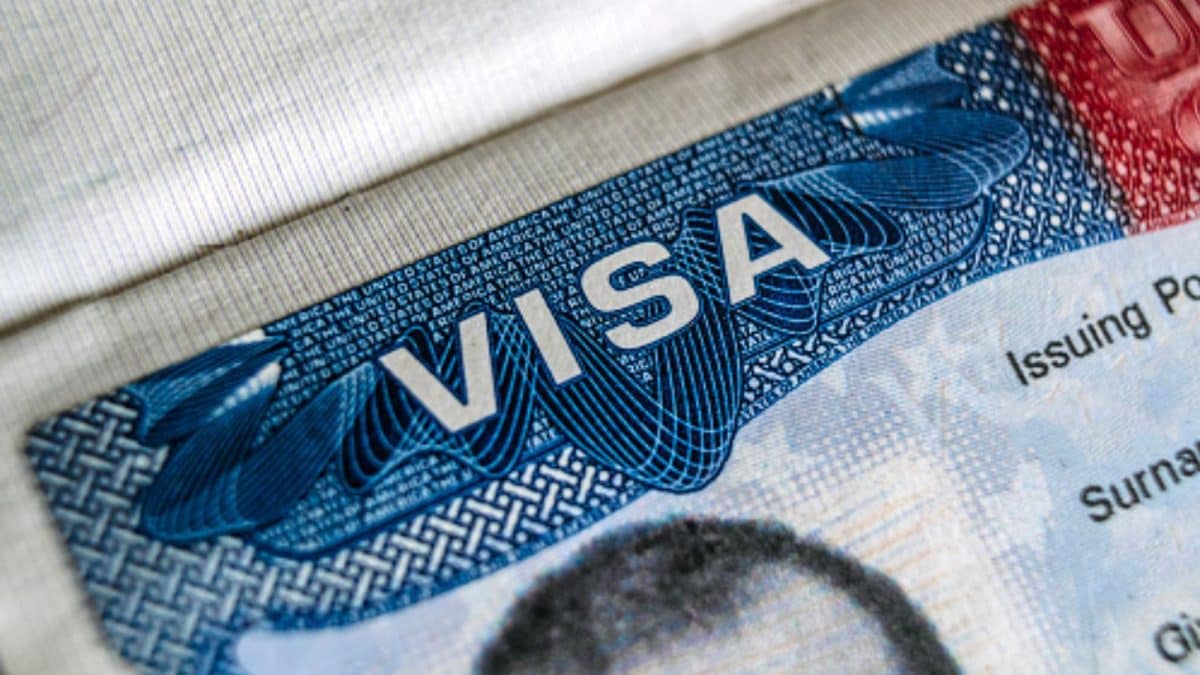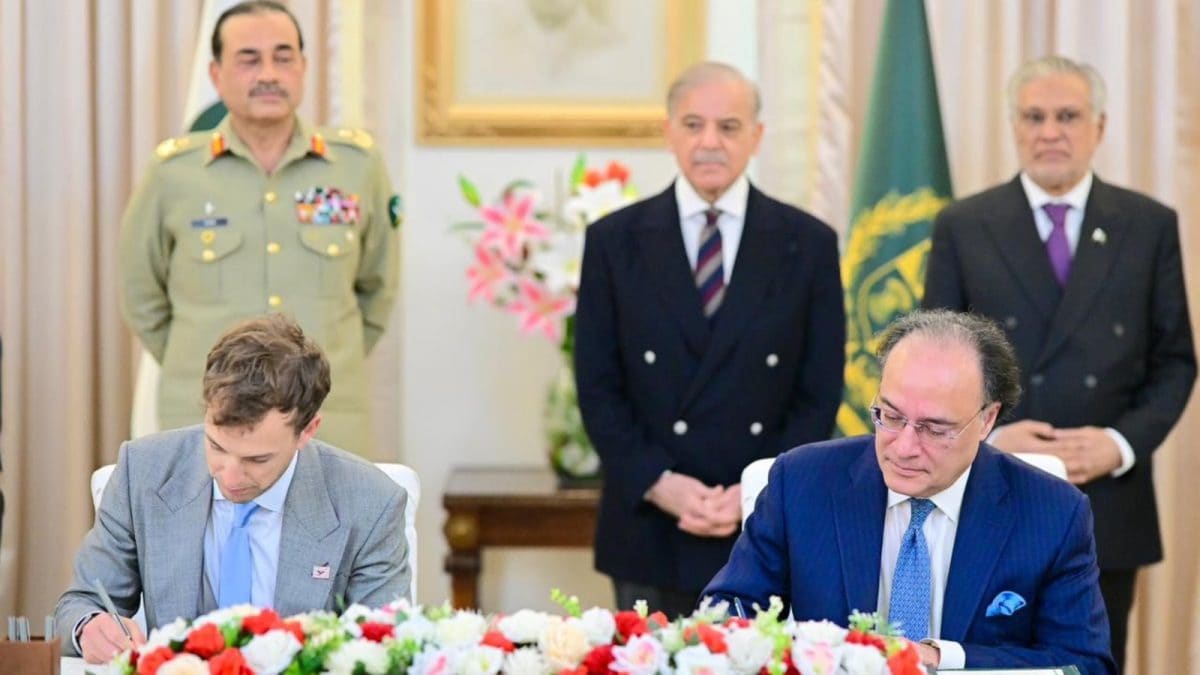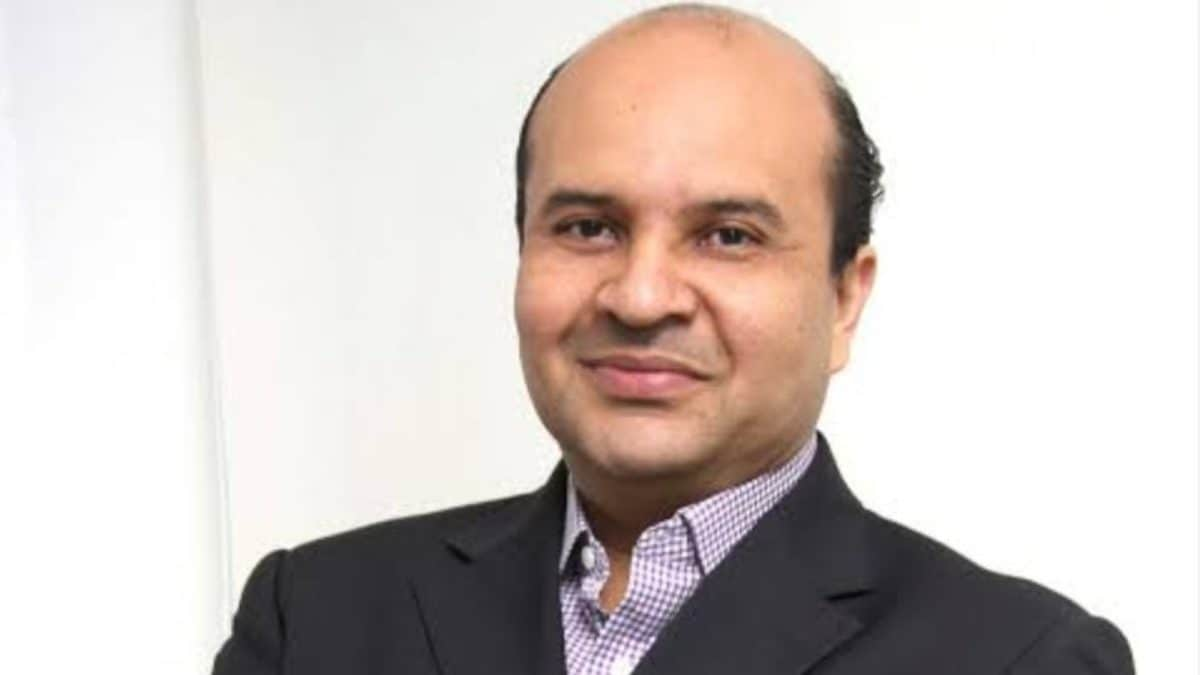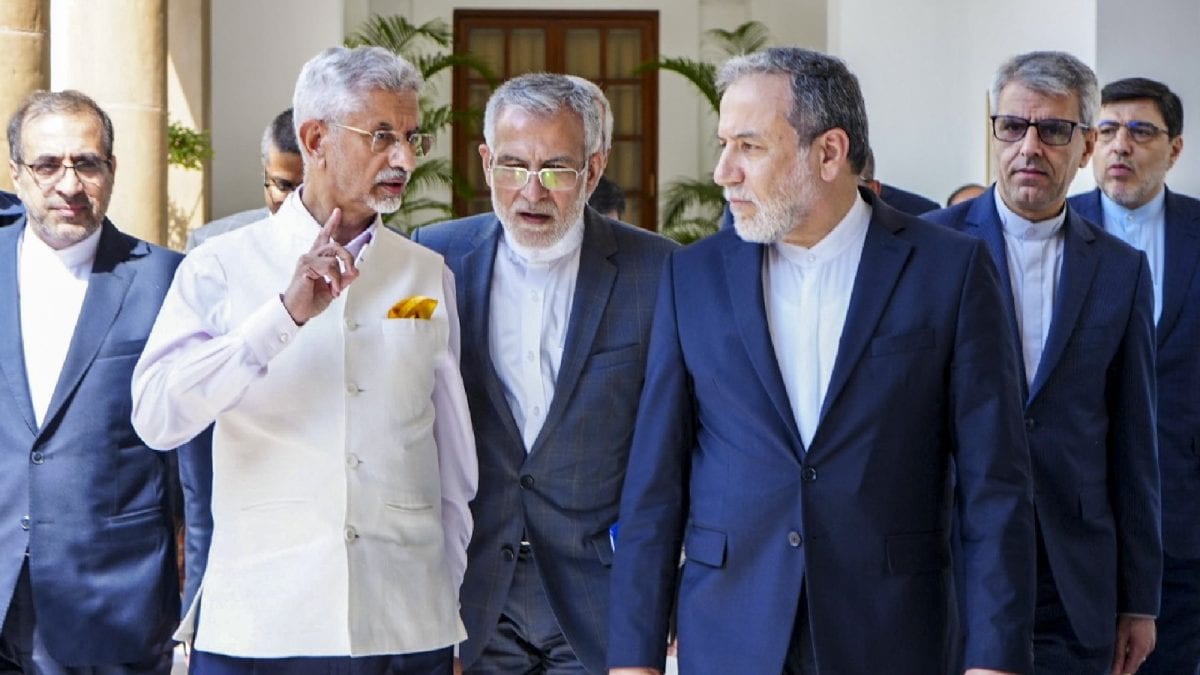Last Updated:November 19, 2025, 13:03 IST
CNN-News18 has learned about some lapses impacting the fairness of Hasina’s trial after speaking to legal/constitutional experts both in New Delhi and Dhaka

A poster of ousted Bangladesh PM Sheikh Hasina (Photo: AFP)
Ousted Bangladesh ex-PM Sheikh Hasina, 78, was on Monday sentenced to death in absentia by the Crimes Tribunal (ICT) for “crimes against humanity" over her government’s brutal crackdown on student-led protests last year. The Awami League leader has been living in India since she fled Bangladesh on August 5 last year in the face of the massive protests.
CNN-News18 has learned about some lapses impacting the fairness of Hasina’s trial after speaking to legal/constitutional experts both in New Delhi and Dhaka.
These lapses could make Hasina’s extradition to Bangladesh difficult.
1. THE FUNDAMENTAL FLAW
The Crimes Tribunal-Bangladesh (ICT-B) was instituted based on the Crimes (Tribunals) Act of 1973. The 1973 Act and amendments to it in 2008 were specifically intended to address crimes of genocide committed during the Bangladesh Liberation War of 1971.
Amendments to the scope of ICT-B 1973 made after August 5, 2024, were done through an Ordinance. This is invalid ab-initio as the duly appointed executive was not operative and the Parliament had not approved it. The Bangladesh President is not empowered to issue the ordinance (Art 93) as the dissolution of the Parliament was not as per procedure.
2. UNCONSTITUTIONAL APPOINTMENT OF JUDGES
On August 10, 2024, the Chief Justice and five other judges of the Appellate Division of the Supreme Court were served an “ultimatum" by a student mob surrounding the Supreme Court and physically forced to resign.
The present three judges in the ICT-B were appointed in violation of the Constitution. The Chairman of ICT, Golam Mortuza Majumder, a retired district court judge, was appointed as a High Court judge only six days before the announcement that the ICT would examine the cases. The second appointee, Mohitul Haque Md Enam Chowdhury, is a retired District and Sessions Judge, and the third one is a lawyer, Shafiul Alam Mahmud, who, like Majumdar, was appointed a few days ago as a High Court judge. They were made permanent judges in violation of Article 98 of the BD Constitution. This Article requires a two-year period of satisfactory performance as additional judges before their elevation as permanent judges. Overall, 22 judges favoured by the Jamaat were made permanent within a year of service.
None of the designated judges have prior experience in applying international legal principles, a gap that is significant in trials involving Crimes Against Humanity.
Shafiul Alam Mahmud has links to BNP. In 2019, he was elected a member of the Supreme Court Bar Association on a BNP slate and has been an active member of the Bangladesh ist Lawyers Forum. The appointment of a political party member as an ICT judge raises questions of bias.
3. PROSECUTION AND DEFENCE ADVOCATES GAMED; OUTCOME PREDETERMINED
The appointment of Md. Tajul Islam as the Chief Prosecutor of the ICT raises serious questions of prosecutorial neutrality. He was earlier the chief lawyer for war criminals in trials before the Crimes and appears to have been appointed by the Jamaat-e-Islami purely for retribution. The appointment of Toby Cadman as Special Adviser to the Chief Prosecutor of the Bangladesh Crimes Tribunal is similarly flawed. He was the lawyer for Jamaat in the trials conducted against them by the Awami League government. This smacks of a vindictive mindset and a conflict of interest at the outset.
On November 18, 2024, though cases charged against Sheikh Hasina are serious and related to genocide and crimes against humanity, ICT ordered completion of the probe into Hasina and 45 others in a one-month time, leading to suspicion that charges and verdict had already been pre-determined.
Sheikh Hasina has maintained that she was denied the opportunity to have lawyers of her choice to defend her in the case.
The State appointed Defence lawyer Md Amir Hossain to represent Sheikh Hasina and former Home Minister Asaduzzaman Khan Kamal. Adv Hossain has no prior experience with Criminal Law. He is quoted as saying, “I did not attempt to (communicate with Sheikh Hasina). There is no provision allowing such an attempt. They also did not try to contact me, nor did they provide any form of assistance. Even if there had been some implicit support, it would have benefited me — but nobody did anything. There is no legal provision either."
In August 2025, senior Bangladesh Supreme Court lawyer, Z.I. Khan Panna, tried to represent Sheikh Hasina at the Crimes Tribunal – Bangladesh, but his application was denied. The application was filed by lawyer Nazneen Nahar on behalf of Panna at the Tribunal seeking to defend Hasina in the case. ICT questioned the purpose of the application during the testimony stage, stating that it could not be accepted. Legal analysts clearly pointed that the decision constitutes a travesty of justice, denying Hasina the right to be represented in the case.
Legal analysts also questioned the decision to appoint the same defence counsel for both former Prime Minister and former Home Minister. This leads to the possibility of a conflict of interest.
The state lawyer for the two accused only received all evidence relied on by the prosecution on 25 June 2025, approximately five weeks before the first day of trial. Considering the quantum of evidence, it is surprising that the lawyer did not seek additional time for preparation for the trial that started on 3 August, leading legal analysts to question the seriousness of defence attorneys. The fact that the lawyer did not have any contact with the client raises questions on who he was defending.
The prosecutors used a 2013 Appellate Division judgment in the Quader Mollah war crimes case (which held that he should be executed) to stop the state defence lawyer from cross-examining the witnesses for contradictions between what had previously been said to the investigation officer and what was said in Court. During the prosecution of Jamaat-e-Islami leaders, when such an instance occurred, the defence team, which included the Chief Prosecutor Tajul Islam and others who are part of the prosecutors’ team, argued strongly against the defence. Not permitting cross-examination strikes at the root of the fairness of trial, which hinges on testimony before the police as the basis for prosecution.
Hasina’s defence lawyer after the judgment is quoted as saying he cannot file an appeal as his clients are absconding. “If they are arrested or surrender before the tribunal, only then can an appeal be filed," he said. He also stated that the Tribunal told him he would not be provided with a copy of the verdict.
Legal analysts questioned the approach by the defence in raising doubts about the authenticity of the telephone conversations attributed to Hasina, when she has denied ever giving a direct order on the use of lethal force.
There are broader questions also raised about the fairness of trial in the absence of the accused, especially when capital punishment is awarded.
Legal analysts note that trials involving complex case-laws, large volumes of evidence, and multiple witnesses typically take many months to complete. However, in the present case, the trial began on 3 August 2025 and was concluded by 23 October 2025 (testimony concluded on 8 October), a remarkably short time-span which raises serious questions about rigour, procedural fairness, and whether the outcome may have been predetermined.
4. SPECIOUS CASES
After August 5, murder charges have been filed against individuals alleged to be associated with Awami League, including social activists, journalists, former judges, sports personalities, businessmen, etc. Mass arrests and unlawful incarceration of anyone from rights activists to journalists regarded as dissenters to the interim government is ongoing. Murder cases have also been filed against lawyers, including notable human rights lawyer Zi Ali Khan Panna, chairman of Ain O Salish Kendra, on October 20. Murder charges are in such numbers as to raise questions around their credibility.
A number of cases have been filed against Awami League Ministers, MPs, and workers. Over 200 cases have been filed against SH alone, including 136 for murder, 7 for crimes against humanity, 3 for abduction, etc. Nearly 400 former ministers, MPs, and other Awami League officials have been named in over 1170 cases which include hundreds of unnamed individuals and often the same people being charged in multiple cases at multiple locations on the same day.
On December 5, 2024, ICT sought a ban on the dissemination of Sheikh Hasina’s remarks through media and social platforms, attempting to gag Hasina’s freedom of expression even before trials started.
Arbitrary arrests and detentions were done without following proper legal procedure or even showing a warrant or FIR. No charges appear to have been filed against human rights violations and systematic excesses that have taken place after August 5, 2024, under the watch of the Anti-Discrimination Students Movement. Attempts appear to have been made to whitewash them under the specious plea of ‘political violence’ as though killings acquire legal sanctity when they have a political motive.
Meanwhile, the release on bail or withdrawal of charges against other politicians, notably belonging to Jamaat, the release of convicted terrorist Lutfozamaan Babar, the release of Jashimuddin Rahmani (from Ansarullah Bangla Team), and other extremists out on bail call into question the political motivation of the interim government. Media and social media reports have alleged custodial deaths of 11 leaders affiliated with Awami League since August 2024.
Several bullets that killed the protesters were not of the calibre in use by the police. Adequate forensic investigation was never done.
Safety of the accused during trial has been compromised. Attacks were orchestrated on several arrested Awami League leaders inside court premises in the presence of police, like Salman Rahman, Dipu Moni, etc. Attacks on lawyers and accused victims outside courts continued unabated, hampering their movement and restricting a fair trial.
5. INTENT TO PROSECUTE BEFORE TRIAL
Questions on fairness and prosecutorial neutrality. Md. Tajul Islam, Chief Prosecutor of the Crimes Tribunal, 17 October 2024 (before trial): “The court has ordered the arrest of former Prime Minister Sheikh Hasina and to produce her in court on 18 November. Sheikh Hasina was at the helm of those who committed massacres, killings, and crimes against humanity from July to August. It is a remarkable day for us."
Nahid Islam, IT Adviser, 21 October 2024: “I want to tell everyone that Hasina will not be able to return to Bangladesh to do politics, but only to walk the gallows."
While Sheikh Hasina has been declared a fugitive, the interim government is unwilling to take the matter to the Criminal Court, to which Bangladesh is a State Party, owing to inconsistencies in the case. Bangladesh ratified the Rome Statute on March 23, 2010, which entered into force on June 1, 2010.

Siddhant Mishra is a Senior Special Correspondent at CNN-News18, covering foreign affairs and international relations. With over 12 years of experience in journalism, he has also reported extensively on crime, ...Read More
Siddhant Mishra is a Senior Special Correspondent at CNN-News18, covering foreign affairs and international relations. With over 12 years of experience in journalism, he has also reported extensively on crime, ...
Read More
First Published:
November 19, 2025, 12:20 IST
News world Sheikh Hasina Sentenced To Death: Legal Lapses That May Make Bangladesh Ex-PM’s Extradition Tough
Disclaimer: Comments reflect users’ views, not News18’s. Please keep discussions respectful and constructive. Abusive, defamatory, or illegal comments will be removed. News18 may disable any comment at its discretion. By posting, you agree to our Terms of Use and Privacy Policy.
Read More

 1 month ago
1 month ago
